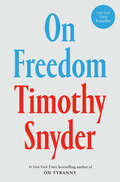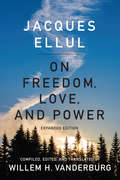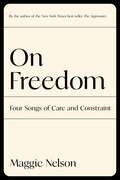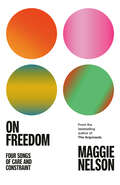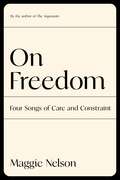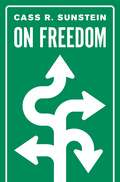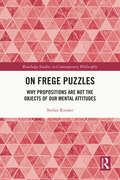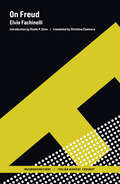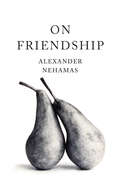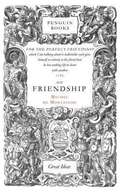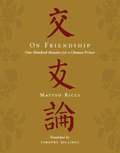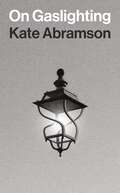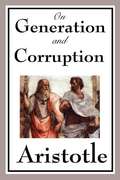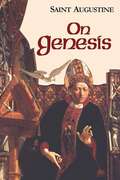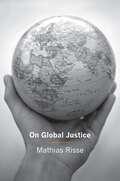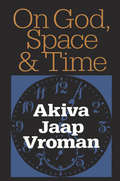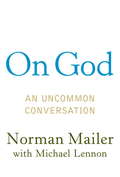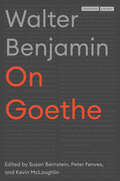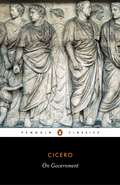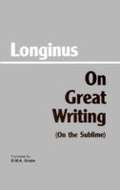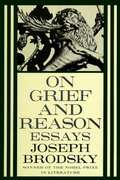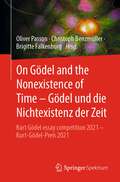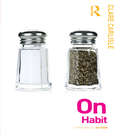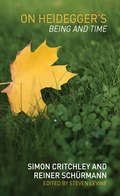- Table View
- List View
On Freedom
by Timothy SnyderNEW YORK TIMES BESTSELLER • A &“visionary&” (The Guardian) exploration of freedom—what it is, how it&’s been misunderstood, and why it&’s our only chance for survival—by the acclaimed Yale historian and author of On Tyranny&“[Snyder&’s] deep political and philosophical examination of how to . . . create and sustain freedom provides a hopeful view for the future.&”—Los Angeles TimesTimothy Snyder has been called &“the leading interpreter of our dark times.&” As a historian, he has given us startling reinterpretations of political collapse and mass killing. As a public intellectual, he has turned that knowledge toward counsel and prediction, working against authoritarianism here and abroad. His book On Tyranny has inspired millions around the world to fight for freedom. Now, in this tour de force of political philosophy, he helps us see exactly what we&’re fighting for.Freedom is the great American commitment, but as Snyder argues, we have lost sight of what it means—and this is leading us into crisis. Too many of us look at freedom as the absence of state power: We think we're free if we can do and say as we please, and protect ourselves from government overreach. But true freedom isn&’t so much freedom from as freedom to—the freedom to thrive, to take risks for futures we choose by working together. Freedom is the value that makes all other values possible.On Freedom takes us on a thrilling intellectual journey. Drawing on the work of philosophers and political dissidents, conversations with contemporary thinkers, and his own experiences coming of age in a time of American exceptionalism, Snyder identifies the practices and attitudes—the habits of mind—that will allow us to design a government in which we and future generations can flourish. We come to appreciate the importance of traditions (championed by the right) but also the role of institutions (the purview of the left). Intimate yet ambitious, this book helps forge a new consensus rooted in a politics of abundance, generosity, and grace.
On Freedom, Love, and Power
by Jacques Ellul Willem H. Vanderburg Dominique North-Ellul Yves Ellul Jean EllulJacques Ellul (1912-1994) was a French law professor, historian, sociologist, lay theologian, and Christian anarchist. During the Second World War, he was active in the French resistance; his efforts to save Jews during this time eventually earned him the title "Righteous Among the Nations." A towering intellectual figure, Ellul taught in Paris and at the University of Bordeaux, wrote and published extensively, and engaged throughout his career in a dialogue between the realities of technology and contemporary life, the tenets of the Christian faith, and the principles of human freedom. Transcribed here for the first time, this series of talks refines and clarifies some of Ellul's most controversial insights into what it means to understand and live out God's wishes.Ellul's evaluation of a number of interrelated books of Scripture, including Genesis, Job, Matthew, and John, challenges Jewish and Christian orthodoxies and more progressive interpretations alike by claiming that the Judeo-Christian tradition is both anti-moral and anti-religious. Promoting a life based on freedom and love, Ellul's thinking opens the door to, in his words, "thinking globally and acting locally."
On Freedom, Love, and Power
by Jacques Ellul Willem H. VanderburgOne of the most important and original thinkers of the twentieth century, Jacques Ellul (1912-1994) was a noted sociologist, historian, law professor, and self-described "Christian anarchist." At the University of Bordeaux, Ellul taught and wrote extensively on the relationship between technology and contemporary culture, the tenets of the Christian faith, and the principles of human freedom and responsibility. On Freedom, Love, and Power is the transcription of a series of talks given by Ellul in 1974 in which he refines and clarifies some of his most controversial insights on the Jewish and Christian Bibles and their relevance to contemporary society.This expanded edition of Ellul's talks features additional material, previously unavailable, that focuses on Christianity's potential service to humanity as a community that exemplifies a society where people are reconciled with one another and with God.
On Freedom: Four Songs of Care and Constraint
by Maggie NelsonSo often deployed as a jingoistic, even menacing, rallying cry, or limited by a focus on passing moments of liberation, the rhetoric of freedom both rouses and repels. Does it remain key to our autonomy, justice, and well-being, or is freedom's long star turn coming to a close? Does a continued obsession with the term enliven and emancipate, or reflect a deepening nihilism (or both)? On Freedom is an expansive, exhilarating work of criticism that examines such questions by tracing the concept's complexities in four distinct realms: art, sex, drugs, and climate. Drawing on a vast range of material, from critical theory to pop culture to the intimacies and plain exchanges of daily life, Maggie Nelson explores how we might think, experience, or talk about freedom in ways responsive to the conditions of our day. Her abiding interest lies in ongoing "practices of freedom" by which we negotiate our interrelation with--indeed, our inseparability from--others, with all the care and constraint that entails, while accepting difference and conflict as integral to our communion. For Nelson, thinking publicly through the knots in our culture--from recent art-world debates to the turbulent legacies of sexual liberation, from the painful paradoxes of addiction to the lure of despair in the face of the climate crisis--is itself a practice of freedom, a means of forging fortitude, courage, and company. On Freedom is an invigorating, essential book that meets the challenges of our time. Maggie Nelson is the author of several books of poetry and prose, including, most recently, the New York Times best seller and National Book Critics Circle Award winner The Argonauts. She has been the recipient of a MacArthur Fellowship, a Guggenheim Fellowship, an NEA Fellowship, an Innovative Literature Fellowship from the Creative Capital Foundation, and an Arts Writers Grant from the Andy Warhol Foundation. She is currently a professor of English at University of Southern California and lives in Los Angeles. A New York Times Notable Book for 2021.
On Freedom: Four Songs of Care and Constraint
by Maggie NelsonSo often deployed as a jingoistic, even menacing rallying cry, or limited by a focus on passing moments of liberation, the rhetoric of freedom both rouses and repels. Does it remain key to our autonomy, justice, and well-being, or is freedom's long star turn coming to a close? Does a continued obsession with the term enliven and emancipate, or reflect a deepening nihilism (or both)? <p><p> On Freedom examines such questions by tracing the concept's complexities in four distinct realms: art, sex, drugs, and climate. Drawing on a vast range of material, from critical theory to pop culture to the intimacies and plain exchanges of daily life, Nelson explores how we might think, experience, or talk about freedom in ways responsive to the conditions of our day. Her abiding interest lies in ongoing "practices of freedom" by which we negotiate our interrelation with--indeed, our inseparability from--others, with all the care and constraint that relation entails, while accepting difference and conflict as integral to our communion. For Nelson, thinking publicly through the knots in our culture--from recent art world debates to the turbulent legacies of sexual liberation, from the painful paradoxes of addiction to the lure of despair in the face of the climate crisis--is itself a practice of freedom, a means of forging fortitude, courage, and company. On Freedom is an invigorating, essential book for challenging times.
On Freedom: Four Songs of Care and Constraint
by Maggie NelsonNamed a Most Anticipated/Best Book of the Month by: NPR * USA Today * Time * Washington Post * Vulture * Women’s Wear Daily * Bustle * LitHub * The Millions * Vogue * Nylon * Shondaland * Chicago Review of Books * The Guardian * Los Angeles Times * Kirkus * Publishers WeeklySo often deployed as a jingoistic, even menacing rallying cry, or limited by a focus on passing moments of liberation, the rhetoric of freedom both rouses and repels. Does it remain key to our autonomy, justice, and well-being, or is freedom’s long star turn coming to a close? Does a continued obsession with the term enliven and emancipate, or reflect a deepening nihilism (or both)? On Freedom examines such questions by tracing the concept’s complexities in four distinct realms: art, sex, drugs, and climate.Drawing on a vast range of material, from critical theory to pop culture to the intimacies and plain exchanges of daily life, Maggie Nelson explores how we might think, experience, or talk about freedom in ways responsive to the conditions of our day. Her abiding interest lies in ongoing “practices of freedom” by which we negotiate our interrelation with—indeed, our inseparability from—others, with all the care and constraint that entails, while accepting difference and conflict as integral to our communion.For Nelson, thinking publicly through the knots in our culture—from recent art-world debates to the turbulent legacies of sexual liberation, from the painful paradoxes of addiction to the lure of despair in the face of the climate crisis—is itself a practice of freedom, a means of forging fortitude, courage, and company. On Freedom is an invigorating, essential book for challenging times.
On Freedom: Including Thomas Jefferson's Virginia Statute On Religious Freedom
by Cass R. SunsteinFrom New York Times bestselling author Cass Sunstein, a brisk, provocative book that shows what freedom really means—and requires—todayIn this pathbreaking book, New York Times bestselling author Cass Sunstein asks us to rethink freedom. He shows that freedom of choice isn’t nearly enough. To be free, we must also be able to navigate life. People often need something like a GPS device to help them get where they want to go—whether the issue involves health, money, jobs, children, or relationships.In both rich and poor countries, citizens often have no idea how to get to their desired destination. That is why they are unfree. People also face serious problems of self-control, as many of them make decisions today that can make their lives worse tomorrow. And in some cases, we would be just as happy with other choices, whether a different partner, career, or place to live—which raises the difficult question of which outcome best promotes our well-being.Accessible and lively, and drawing on perspectives from the humanities, religion, and the arts, as well as social science and the law, On Freedom explores a crucial dimension of the human condition that philosophers and economists have long missed—and shows what it would take to make freedom real.
On Frege Puzzles: Why Propositions Are Not the Objects of Our Mental Attitudes (Routledge Studies in Contemporary Philosophy)
by Stefan RinnerThis book argues against the received view of propositional theory, according to which mental attitudes—such as believing, knowing, hoping, and wishing—are relations held between agents and propositions.Roughly speaking, propositions are primary bearers of truth that are neither sentences nor utterances of sentences, be it of a public language or of a language of thought. This book argues that the propositional theory does not provide a solution to Frege’s puzzle about belief, which arises if we formulate disquotational principles connecting sincere assertion and belief, certain standards regarding rationality, and semantic principles such as the theory of direct reference within the framework of the propositional theory. This suggests that we must reject the propositional theory. The book emphasises this again by showing that the propositional theory cannot solve Schiffer's puzzle regarding de re belief, which, in addition to disquotational principles connecting sincere assertion and belief, uses highly plausible exportation and rationality principles for de re belief. It then discusses possible alternatives to the propositional theory, such as Marcus’ theory of states of affairs, Lewis’ property account, Larson and Ludlow’s theory of interpreted logical forms, and Moltmann’s Multiple Relation Theory. Just like the propositional theory, these theories maintain that mental attitudes such as believing are relations, and they also inherit the main problems of the propositional theory. Therefore, the author proposes and develops a non-relational account of the attitudes in question that together with a measurement account of the respective attitude ascriptions, provides a solution to both Frege’s puzzle and Schiffer’s puzzle.On Frege Puzzles will appeal to scholars and graduate students working in philosophy of language, philosophy of mind, and logic.
On Freud (Insubordinations: Italian Radical Thought)
by Elvio FachinelliWritings on Freud by Italy&’s leading psychoanalyst of the twentieth century.Elvio Fachinelli was one of the most original and controversial Italian psychoanalysts of the twentieth century. He viewed psychoanalytic theory as inextricably linked to the concrete experience of everyday reality and as a crucial compass for understanding the social and political turmoil of his era. This compact volume collects Fachinelli&’s writing on Freud, offering readers both an accessible and engaging introduction to Freud&’s thinking and an overview of Fachinelli&’s own main ideas. Written between 1966 and 1989, these essays serve to introduce readers to some of the most provocative aspects of Fachinelli&’s critiques of psychoanalysis and society. On Freud includes a long essay on Freud that weaves the theoretical foundations of psychoanalysis together with a surprising number of idiosyncratic observations about Freud the person. In it, Fachinelli offers a series of parallax perspectives: Freud the conquistador, who leads psychoanalysis to the exploration of new fields of knowledge; Freud the archaeologist, who discovers antithetical and incongruous elements in the territory of the unconscious; and Freud the Victorian, whose bourgeois values clashed with the revolutionary character of his discovery. Other essays include an assessment of psychoanalysis as a general social phenomenon that is increasingly showing its historical limits; a discussion of an encounter between Freud and the poet Rainer Maria Rilke; Fachinelli&’s pointed account of Freud&’s view of psychoanalysis for &“the poor&”; and an examination of the importance of the element of surprise—for both analyst and analysand—in analysis. Without surprise, Fachinelli writes, psychanalysis is just a &“ministering and administering of knowledge, a repetition of the already known.&” This edition includes an authoritative survey of Fachinelli&’s work and insight into how it continues to be relevant today.
On Friendship
by Alexander NehamasFriends are a constant feature of our lives, yet friendship itself is difficult to define. Even Michel de Montaigne, author of the seminal essay "Of Friendship,” found it nearly impossible to account for the great friendship of his life. Why is something so commonplace and universal so hard to grasp? What is it about the nature of friendship that proves so elusive? In On Friendship, the acclaimed philosopher Alexander Nehamas launches an original and far- ranging investigation of friendship. Exploring the long history of philosophical thinking on the subject, from Aristotle to Emerson and beyond, and drawing on examples from literature, art, drama, and his own life, Nehamas shows that for centuries, friendship was as much a public relationship as it was a private one-inseparable from politics and commerce, favors and perks. Now that it is more firmly in the private realm, Nehamas holds, close friendship is central to the good life. Profound and affecting, On Friendship sheds light on why we love our friends-and how they determine who we are, and who we might become.
On Friendship
by Michel De MontaigneThroughout history, some books have changed the world. They have transformed the way we see ourselves - and each other. They have inspired debate, dissent, war and revolution. They have enlightened, outraged, provoked and comforted. They have enriched lives - and destroyed them. Now Penguin brings you the works of the great thinkers, pioneers, radicals and visionaries whose ideas shook civilization, and helped make us who we are. Michel de Montaigne was the originator of the modern essay form; in these diverse pieces he expresses his views on relationships, contemplates the idea that man is no different from any animal, argues that all cultures should be respected, and attempts, by an exploration of himself, to understand the nature of humanity.
On Friendship: One Hundred Maxims for a Chinese Prince
by Matteo Ricci"On Friendship, with its total of one hundred sayings, is the perfect gift for friends."-Feng Yingjing, renowned scholar and civic official, 1601Matteo Ricci (1552-1610) is best known as the Italian Jesuit missionary who brought Christianity to China. He also published a landmark text on friendship-the first book to be written in Chinese by a European-that instantly became a late Ming best seller. On Friendship distilled the best ideas on friendship from Renaissance Latin texts into one hundred pure and provocative Chinese maxims. Written in a masterful classical style, Ricci's sayings established his reputation as a great sage and the sentiments still ring true.Available for the first time in English, On Friendship matches a carefully edited Chinese text with a facing-page English translation and includes notes on sources and biographical, historical, and cultural information. Still admired in China for its sophistication and inspirational wisdom, On Friendship is a delightful cross-cultural work by a crucial and fascinating historical figure. It is also an excellent tool for learning Chinese, pairing a superb model of the classical language with an accessible and accurate translation.
On Gaslighting (Insights: Philosophy in Focus)
by Kate AbramsonA philosopher examines the complicated phenomenon of gaslighting&“Gaslighting&” is suddenly in everyone&’s vocabulary. It&’s written about, talked about, tweeted about, even sung about (in &“Gaslighting&” by The Chicks). It&’s become shorthand for being manipulated by someone who insists that up is down, hot is cold, dark is light—someone who isn&’t just lying about such things, but trying to drive you crazy. The term has its origins in a 1944 film in which a husband does exactly that to his wife, his crazy-making efforts symbolized by the rise and fall of the gaslights in their home. In this timely and provocative book, Kate Abramson examines gaslighting from a philosophical perspective, investigating it as a distinctive moral phenomenon.Gaslighting, Abramson writes, is best understood as a form of interpersonal interaction, a particular way of fundamentally undermining someone. The gaslighter, Abramson argues, aims to make his target experience herself as incapable of reasoning, perceiving, or reacting in ways that would allow her to form appropriate beliefs, perceptions, or emotions in the first place. He seeks not only to induce in her this unmoored sense of herself but also to make it a reality. Using examples and analysis, Abramson gives an account of gaslighting and its immorality, and argues that such a discussion can help us understand other aspects of social life—from racism and sexism to the structure of interpersonal trust.
On Generation and Corruption
by AristotleOUR next task is to study coming-to-be and passing-away. We are to distinguish the causes, and to state the definitions, of these processes considered in general-as changes predicable uniformly of all the things that come-to-be and pass-away by nature. Further, we are to study growth and "alteration." We must inquire what each of them is; and whether "alteration" is to be identified with coming-to-be, or whether to these different names there correspond two separate processes with distinct natures.
On Genesis: Two Books On Genesis: Against The Manichees And On The Literal Interpretation Of Genesis: An Unfinished Book
by Saint AugustineThis volume brings these three works together for the first time in English and provides a valuable and comprehensive introduction to each one.
On Global Justice
by Mathias RisseDebates about global justice have traditionally fallen into two camps. Statists believe that principles of justice can only be held among those who share a state. Those who fall outside this realm are merely owed charity. Cosmopolitans, on the other hand, believe that justice applies equally among all human beings. On Global Justice shifts the terms of this debate and shows how both views are unsatisfactory. Stressing humanity's collective ownership of the earth, Mathias Risse offers a new theory of global distributive justice--what he calls pluralist internationalism--where in different contexts, different principles of justice apply. Arguing that statists and cosmopolitans seek overarching answers to problems that vary too widely for one single justice relationship, Risse explores who should have how much of what we all need and care about, ranging from income and rights to spaces and resources of the earth. He acknowledges that especially demanding redistributive principles apply among those who share a country, but those who share a country also have obligations of justice to those who do not because of a universal humanity, common political and economic orders, and a linked global trading system. Risse's inquiries about ownership of the earth give insights into immigration, obligations to future generations, and obligations arising from climate change. He considers issues such as fairness in trade, responsibilities of the WTO, intellectual property rights, labor rights, whether there ought to be states at all, and global inequality, and he develops a new foundational theory of human rights.
On God, Space, and Time
by Akiva VromanFor Akiva Jaap Vroman "a day in the infinite past" is nonsense. All the days that have elapsed belong to a past of countable days; they started on a first day a finite number of days ago. Time began this first day. It follows that an eternal past does not exist. Vroman bases his reasoning on a simple mathematical law: an infinite quantity remains the same infinite quantity if a finite quantity, however large, is subtracted from it. On God, Space, and Time devotes itself to this proof.On God, Space, and Time is rooted in the epistemological thinking of Immanuel Kant and Jean Piaget and the law of Leucippus, and draws from the somewhat disparate fields of psychology, physiology, mathematics, and physics.
On God: An Uncommon Conversation
by Norman Mailer J. Michael Lennon"I see God," wrote Norman Mailer, "as a Creator, as the greatest artist. I see human beings as His most developed artworks." In these moving, amusing, and probing dialogues conducted in the years before his death, Mailer establishes his own system of belief, rejecting both organized religion and atheism. He avows that sensual pleasures were bestowed on us by God; he finds fault with the Ten Commandments; and he holds that technology was the Devil's most brilliant creation. In short, Mailer is original and unpredictable in this inspiring journey, in which "God needs us as much as we need God."
On Goethe (Cultural Memory in the Present)
by Walter BenjaminOn Goethe contains the full range of Walter Benjamin's reflections on the central figure in modern German culture. The writings in this volume—newly translated, fully annotated, and framed by an extensive introduction—display a variety of styles and cover a vast array of topics. The collection revolves around two strikingly different essays. Whereas "Goethe's Elective Affinities" develops a theory of critique in which a work is illuminated wholly from within itself, an article Benjamin wrote on Goethe for the Soviet Encyclopedia represents his first large-scale attempt to elaborate a historical-materialist methodology. The other thirty translations stand in similarly productive tension with one another. Some are concerned with concepts of beauty and categories of the aesthetic, others with the relation of art to politics and the status of "classical authors" in contemporary culture, and still others with what remains of humanistic traditions in the wake of their disappearance under fascist regimes and what synthesis is required for the construction of a historical object. The volume provides a glimpse into the laboratory of Benjamin's thought, while granting readers a series of insights into the epochal phenomena that gather around the name "Goethe."
On Government
by CiceroThese pioneering writings on the mechanics, tactics, and strategies of government were devised by the Roman Republic's most enlightened thinker.
On Great Writing (on The Sublime)
by G. M. A. Grube LonginusCelebrated for its own clarity and sublime style, this classic work of literary theory draws on the writings of Demosthenes, Plato, Sappho, Thucydides, Euripides, and Aeschylus, among others, to examine and delineate the essentials of a noble style. The complete translation, from the Greek of A. O. Prickard's Oxford text, features an introduction by Grube, establishing the historical and critical context of the work, and a biographical index.
On Grief and Reason: Essays
by Joseph Brodsky21 essays: Spoils of War, The Condition We Call Exile, A Place as Good as Any, Uncommon Visage, Acceptance Speech, After a Journey, Altra Ego, How to Read a Book, In Praise of Boredom, Profile of Clio, Speech at the Stadium, Collector's Item, An Immodest Proposal, Letter to a President, On Grief and Reason, Homage to Marcus Aurelius, A Cat's Meow, Wooing the Inanimate, Ninety Years Later, Letter to Horace, and In Memory of Stephen Spender.
On Gödel and the Nonexistence of Time – Gödel und die Nichtexistenz der Zeit: Kurt Gödel essay competition 2021 – Kurt-Gödel-Preis 2021
by Brigitte Falkenburg Oliver Passon Christoph BenzmüllerKurt Gödel was not just a brilliant logician but contributed also important results to the general theory of relativity. In the 1940s he found a solution to Einstein's field equations which (roughly speaking) allows for time-travel, i.e. compromises our very notion of time. This book brings together the contributions to the Kurt Gödel essay competition on the question: "What does it mean for our world view if, according to Gödel, we also assume the non-existence of time?” Kurt Gödel war nicht nur ein brillanter Logiker, sondern trug auch wichtige Ergebnisse zur allgemeinen Relativitätstheorie bei. In den 1940er Jahren fand er eine Lösung für die Einsteinschen Feldgleichungen, die (grob gesagt) Zeitreisen ermöglicht, d.h. unsere Vorstellung von Zeit in Frage stellt. Dieses Buch versammelt die Beiträge zum Kurt-Gödel-Aufsatzwettbewerb zu der Frage: "Was bedeutet es für unser Weltbild, wenn wir mit Gödel die Nichtexistenz der Zeit annehmen?"
On Habit: On Habit (Thinking in Action)
by Clare CarlisleFor Aristotle, excellence is not an act but a habit, and Hume regards habit as ‘the great guide of life’. However, for Proust habit is problematic: ‘if habit is a second nature, it prevents us from knowing our first.’ What is habit? Do habits turn us into machines or free us to do more creative things? Should religious faith be habitual? Does habit help or hinder the practice of philosophy? Why do Luther, Spinoza, Kant, Kierkegaard and Bergson all criticise habit? If habit is both a blessing and a curse, how can we live well in our habits? In this thought-provoking book Clare Carlisle examines habit from a philosophical standpoint. Beginning with a lucid appraisal of habit’s philosophical history she suggests that both receptivity and resistance to change are basic principles of habit-formation. Carlisle shows how the philosophy of habit not only anticipates the discoveries of recent neuroscience but illuminates their ethical significance. She asks whether habit is a reliable form of knowledge by examining the contrasting interpretations of habitual thinking offered by Spinoza and Hume. She then turns to the role of habit in the good life, tracing Aristotle’s legacy through the ideas of Joseph Butler, Hegel, and Félix Ravaisson, and assessing the ambivalent attitudes to habit expressed by Nietzsche and Proust. She argues that a distinction between habit and practice helps to clarify this ambivalence, particularly in the context of habit and religion, where she examines both the theology of habit and the repetitions of religious life. She concludes by considering how philosophy itself is a practice of learning to live well with habit.
On Heidegger's Being and Time
by Simon Critchley Reiner SchürmannOn Heidegger's Being and Time is an outstanding exploration of Heidegger's most important work by two major philosophers. Simon Critchley argues that we must see Being and Time as a radicalization of Husserl's phenomenology, particularly his theories of intentionality, categorial intuition, and the phenomenological concept of the a priori. This leads to a reappraisal and defense of Heidegger's conception of phenomenology. In contrast, Reiner Schürmann urges us to read Heidegger 'backward', arguing that his later work is the key to unravelling Being and Time. Through a close reading of Being and Time Schürmann demonstrates that this work is ultimately aporetic because the notion of Being elaborated in his later work is already at play within it. This is the first time that Schürmann's renowned lectures on Heidegger have been published. The book concludes with Critchley's reinterpretation of the importance of authenticity in Being and Time. Arguing for what he calls an 'originary inauthenticity', Critchley proposes a relational understanding of the key concepts of the second part of Being and Time: death, conscience and temporality.
